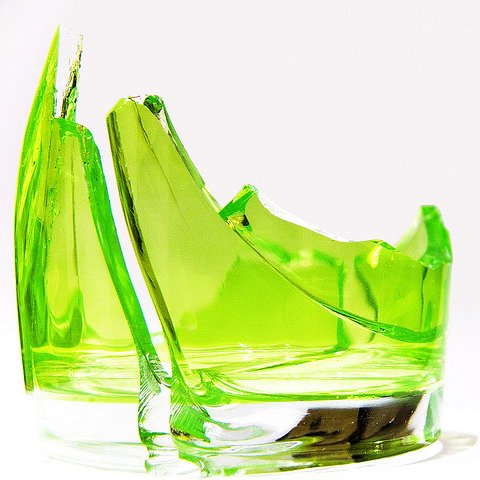Character is much easier kept than recovered. – Thomas Paine

How do you recover after your character has been shattered? Or would it have been better to never have done it in the first place? Which would be easier to do?
What does that mean?
This quote is about that most public of private things, our reputation, or the public perception of our character. The quote says that once you have developed your character, that it is fairly fragile, and needs to be carefully maintained.
How many times to you have to lie to seriously damage your character? Conversely, how long will it take to regain it? Does that give you another way of looking at today’s quote?
The quote is urging us to be careful not to mess up our reputation or our character by doing stupid things or things that are out of character. By doing something stupid, we end up having to recover or rebuild our reputation and our character piece by piece, a long and laborious task.
Instead, the quote urges us to consider simply maintaining our character and our reputation. To do this, we need to think about the consequences of our actions, and develop the habits which support acting in good character.
Why is maintaining our reputation important?
If you have ever had to work to regain or recover your character or reputation, then you already know why it is important not to let it fall in the first place. If not, trust me, it’s far more work to get regain than it is to maintain your reputation.
You only have to worry about your character if you don’t have good habits. If your habit is to lie about the little things when it is convenient, you will never have great character. Trying to improve your character or reputation will require a great deal of time without any little lies before people begin to expect what you say to always be the truth.
Once you become known as a liar, a cheat, or someone who isn’t trustworthy (to name a few character flaws), you’re facing a huge rebuilding process, as you try to prove yourself worthy once again. Is it worth that one instance of bad behavior, if it does that much damage? I would say that’s the best argument for maintaining instead of goofing up and having to regain.
Where can I apply this in my life?
Let’s start by considering what is the norm in your culture and in your society. When is it permissible to lie? Does it depend on to whom you would be lying? Does it depend on how severe or significant the lie is? Are certain types of lies considered worse than others?
For me, lies of omission and the ‘little white lie’ are considered permissible, in the proper circumstances. When a young child asks you what those dogs are doing, a lie of omission is probably most appropriate, especially if it’s not your child.
If your spouse or a close friend asks a ‘loaded’ question, sometimes the ‘little white lie’ is appropriate. “Does this dress make me look fat?” The honest answer might be that no, it’s the size of your belly that makes you look fat. However, if you want to live to see the next day, you might want to try a little white lie.
We discussed lies, but what else does your culture or society value? What is expected of people of high character? Are there professions that have different standards or assumptions? If a politician is speaking, do you assume they are lying, or do you hold them to a higher standard?
Now take a few moments to consider how you measure up to those standards. Are you the kind of person most would admire for your great character, or are you the kind of person that other people’s mothers use as an example of what happens when you don’t have good character?
Most of us fall somewhere in-between, but if we don’t take an honest assessment of where we are, how will we find our way forward? What are your strongest characteristics? Grab some paper and write them down. Now write down the three or four characteristics which need the most work to help you to recover your character and reputation.
Next to each of the good and less-than-good points, write down what you have done to earn that reputation? Are there patterns shared by the good and other patterns shared by the others? Or is it the same pattern, but in different directions?
By analyzing the things we do right and the things we need to improve, we can better understand what we might be able to do to start on the road to reclaiming our character, or to better defend it from the possibility of poor decision making, right?
Select one of your less-than-good points, and consider what you need to do to help people notice your behavior has improved. Write down a couple of things you can do in the short term, to get the ball rolling. Then add any other ideas you can regarding longer term demonstrations of your new character.
Finally, consider what habits you have that tend to lead you in the wrong direction, and what you might do to disrupt those habits. What can you do to replace those habits with more beneficial habits? Not even taking the first step is far easier than trying to stop yourself after you have started down the other path, right?
Your character or reputation is a fragile thing, and needs to be guarded carefully. Failure to do so can result in a great deal of work, as you try to regain it, and set things right. Or you could put in a tiny fraction of that effort and protect your character. I know which I try to do, what choice will you make?
From: Twitter, @motivational
confirmed at : http://www.brainyquote.com/quotes/quotes/t/thomaspain106084.html
Photo by Duke LeNoir
Happy Birthday to Thomas Paine, born 29 January, 1737 (sometimes also listed as 9 February, 1737, due to differences in the calendars of the era)






